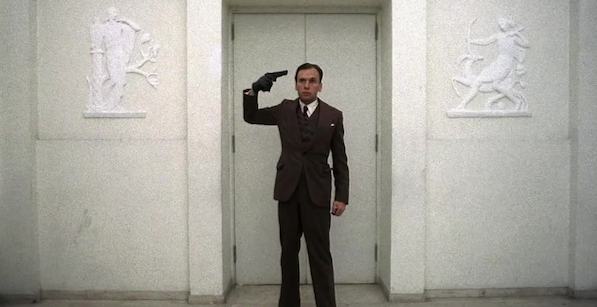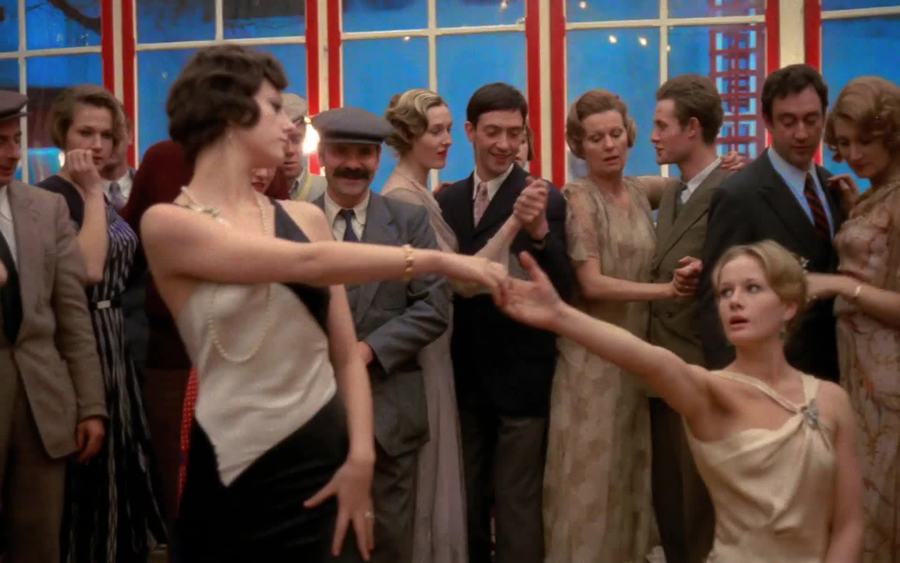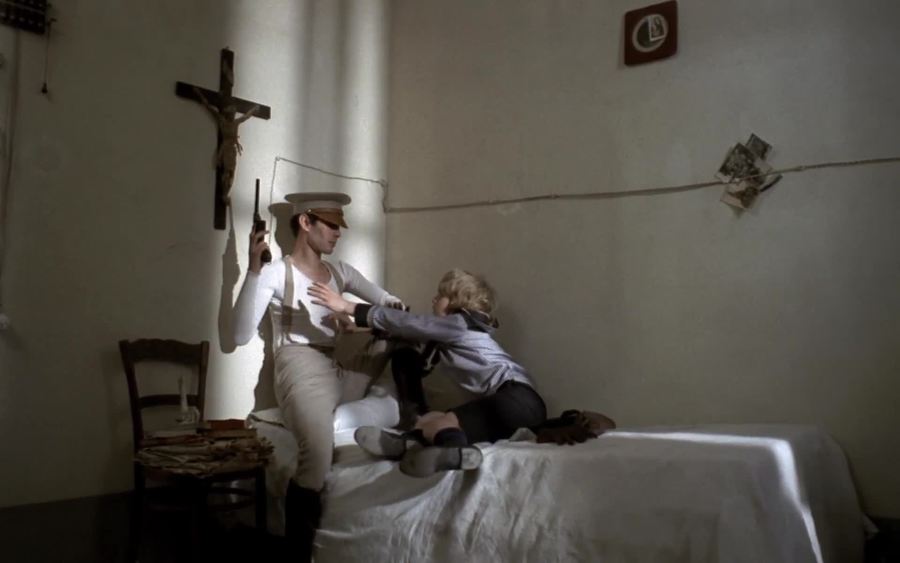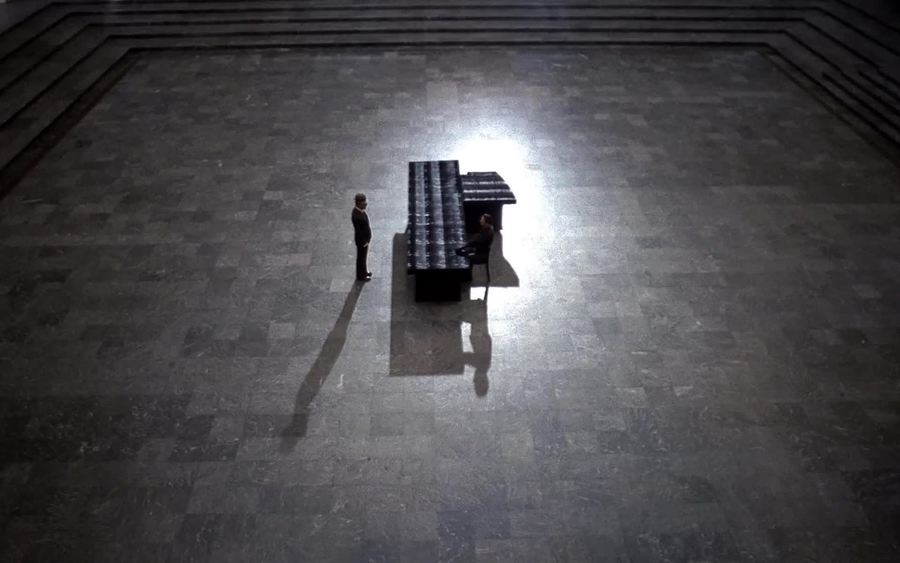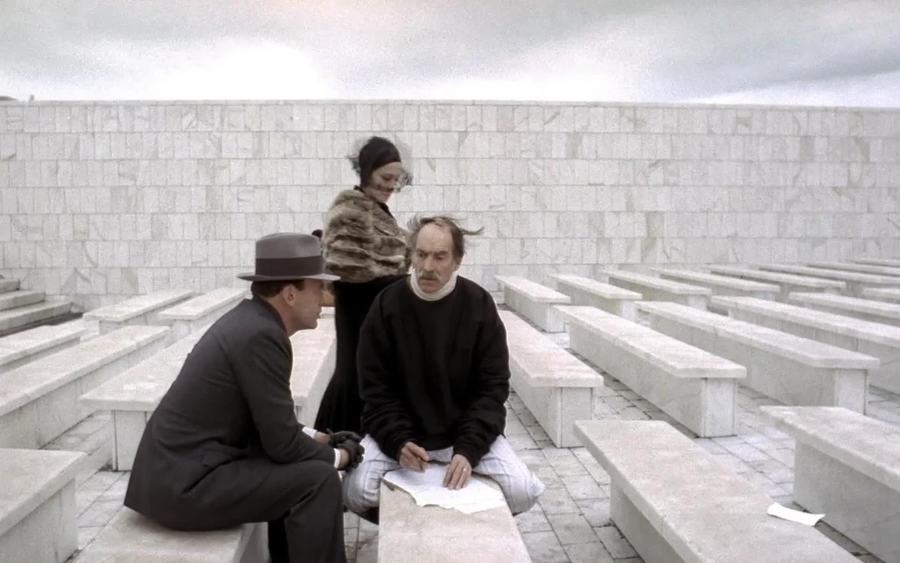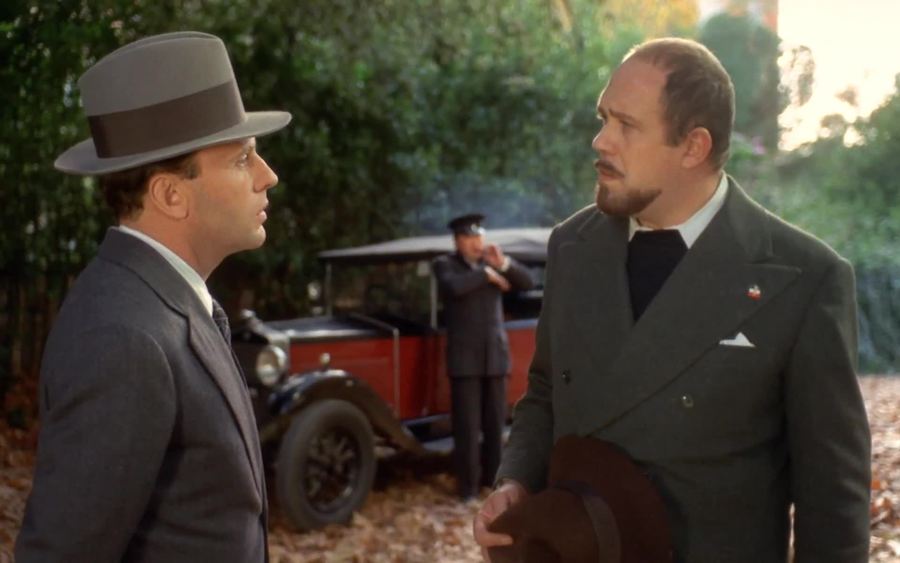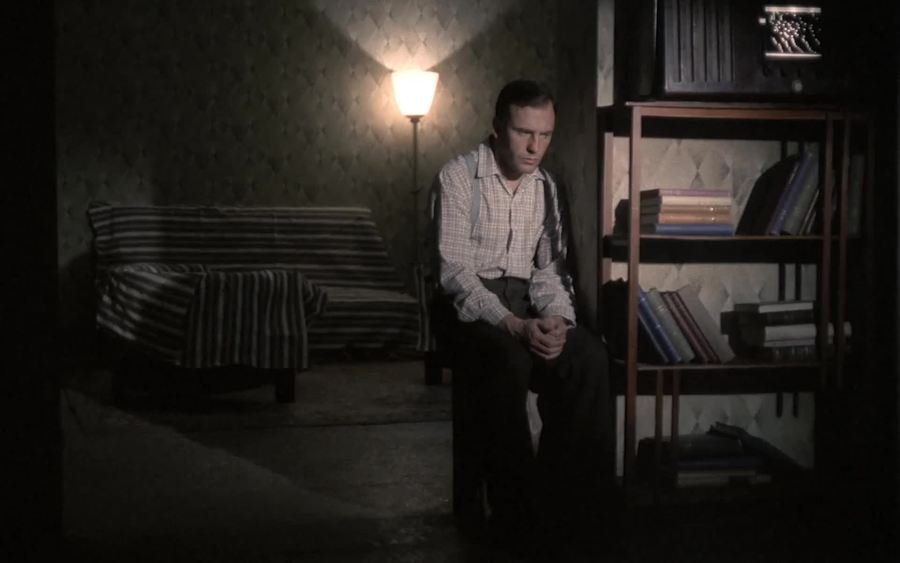Radical flamethrower to Arthouse Apollo to Oscar-winning mastodon-driver to decadent mezzobrow miniaturist, Bernardo Bertolucci‘s evolutionary arc has spanned now almost sixty years, but nothing can compare to his fiery first Godard-gangscrews-Romanticism career phase, a thundering attack of cinematic vividness stretching essentially from his first features in the early ‘60s to the old-Flemish crescendo of 1900 (1976), during which time the films quickly graduated from student politics to *epico* banquets of physical rapture and thematic density, and redefined Italian cinema for a new global audience, once the famous law firm of Fellini, Rosi, Antonioni and Visconti began atrophying in their autumn fame days. Bertolucci’s critical record since has been erratic, from Oscars to lovably loopy follies like Little Buddha (1993), but as the years pass it remains imperative to recall how much of a miracle his New Wave-era run was, easily to rank besides Francis Ford Coppola‘s seventies, and Carol Reed‘s late forties, to name two others with careers that seemed to peak early amid a mysterious cocktail of circumstance, grace, collaborators, ambition and zeitgeist.
In the middle of Bertolucci’s belle epoque, in a torrent of silk and shadow, we find The Conformist (1970), still an eye-watering testimony to the erstwhile dash of international cinema and quite possibly, shot for shot, the most ravishing single film ever made. Manifesting novelist Alberto Moravia‘s shadow-box contest between political compliance and personal shame with one of the most arresting mise-en-scene strategies ever concocted for any movie, Bertolucci has created cinema that red-inks your inner calendar. Set entirely in rainy city afternoons and indigo evenings, you can hardly help corresponding the film to seminal mood moments in your own life. This was the age, after all, when swooning art films, not superhero blockbusters, were students’ touchstones, and among the films that marked that generation, The Conformist was a singular peacock, a triumphant cataract of passion and rue.
Told in timeline flea leaps, the story follows Marcello (Jean-Louis Trintignant), a would-be sophisticate lining up with Mussolini’s Fascists in the thirties for his own, very private reasons—as the title makes clear, this is participatory politics seen as psychosocial dysfunction. Being “normal” is an ideal the fiercely closeted Marcello talks about a lot, his compulsive desire to belong spiraling out to include marriage (to the fabulously pliable and obnoxious Stefania Sandrelli) and insinuating himself into the Party by framing up his old university mentor (Enzo Tarascio) and, by extension, the prof’s sexy, testy trophy wife (Dominique Sanda), truly a disarming and unpredictable character choice, dolled up and tricked out like a vampy thirties poster femme come to mannered life. The motor for Marcello’s lost ping-pong-ing between allegiances and whims (his toss-it-all yen for Sanda’s bisexual flirt moves to the heart of the film, and then, terribly, is demolished somewhere off-screen and then seems to have never been there) is an innocuous childhood accident of illegal sex and blood crime, from which spills a lifetime of searching and emptiness.
Is it the greatest film ever made about being gay? Yes, because it’s not about sex but about the sublimated friction between identity and society, limned in a Greek-tragic feat of storytelling and lamented like a natural disaster. More than that, The Conformist is a bludgeoning indictment of fascistic follow-the-leader, perpetrated as an orgasm of coolness, ravishing compositions, camera gymnastics (the frame virtually squirms around, like Marcello) and atmospheric resonance—the case is made in every frame for the decadent, twilit-Art Deco-noir style being itself a va’a fare in culo refutation of totalitarian norms and dictates. The actors vogue, Vittorio Storaro‘s lens transforms every street and room into a catalytic baroque-ness, the clothes grip the characters like iconic mantles—to a large degree, the film is an immaculate puppet-play about the tension between pleasure (stylistic, sexual, etc.) and imposed duty. If all Bertolucci did was sit Storaro (again, his accomplishment may be the apex of color cinematography) and ironic-heartbreaking composer Georges Delerue at a table and give them drinks, he might’ve done enough. But there’s a fire underneath the tailored rump of The Conformist that is Bertolucci’s alone, insuring that this is more than just Moravia’s morality tale well told but an ocular Gesamtkunstwerk, a whole world and sensual experience captured within and exuded from a singular corridor of lantern-light.
For Italian cinema, The Conformist was a vitamin shot, the Italian film for cinephiles tired by the seventies of Fellini’s sawdust-and-tinsel showmanship, bored with Antonioni’s striving for counter-culture hipness, skeptical of the New Wavey-ness of Bellocchio‘s much-vaunted Fists in the Pocket (an admitted inspiration, in any case, to the then-age-twenty-three Bertolucci), and otherwise wondering if Italian cinema was heading into another of its periodic dips in creative energy. (The 1980s, in Italy as elsewhere, is when the true drought struck.) But of course Bertolucci’s film was fashionably international, with two French leads (plus French meta-icon Pierre Clementi, as the troll figure in Marcello’s muddling, mythic backstory) and a post-dubbed-to-suit-all soundtrack, and what was often found beguiling about Italian movies (the simple passions, vaulting line deliveries, lusty lifestyle portraiture, earthy peasant-vs.-corrupt-urbanite dynamics), as well as what was sometimes irritating (same), is all but absent. The Conformist unpeels a vital and morally troubling sliver of its nation’s history (Italian cinema is not known for acknowledging Italy’s transgressions leading up to and during WWII), and yet it never quite feels like something symptomatically “Italian,” but rather a glam reboot of what global “art film” could be—painterly yet socially interrogatory, emotionally unchained yet sophisticated.
Bertolucci had begun as an ardent Godardian, and on its glorious surface The Conformist feels like a departure from the bomb-throwing, fragmented, overtly reflexive, spontaneous vibe of The Grim Reaper (1962), Before the Revolution (1964) and Partner (1968), and a firm step toward the mainstream. But the movie cannot be seen as any kind of sellout, and it has Godardianism encoded in its DNA, somewhat secretly, from the continental trainride with a sunset movie playing outside the window to the profusion of shock cuts and leaps of perspective, and the degree to which Marcello, posing in his raincoat and fedora, and sporting a new pistol given him by the Fascists, is as enamored of his own movie-matinee persona as was Jean-Paul Belmondo‘s Michel in Breathless.
But then there’s the echo chamber formed between The Conformist and Godard’s Contempt, released seven years earlier, both films representing a new accommodation with narrative for their postmod makers, and both then occupying a lush, romantic, Georges Delerue-scored middle country between meta-movie radicalism and populist international romances. Both films are of course based upon Alberto Moravia novels, but impishly—Bertolucci claims not to have read the book when he suggested its adaptation to Paramount. Similarly, Godard derided Moravia’s The Ghost at Noon as “a nice, vulgar read for a train journey,” and while neither film does completely away with Moravia’s rich sense of character, and indeed both films depend upon the novelist’s subtle psychological structures for their thematic resonances, each filmmaker busily converted the books into a new kind of movie, films that know they are films, self-conscious and voguing visual submersions that scene for scene attempt to sidestep their own stories’ melancholy and seem often to move in counterpoint to Delerue’s plaintive scores. It’s not by chance that they are the two saddest films of the entire New Wave era.
Bertolucci wouldn’t turn back. His Godardian itch thus sufficiently scratched, his penchant toward grand, stylized drama for its own sake, magnificently filmed and pungently conceived, would dominate, from The Spider’s Stratagem (premiering in Venice just two months after The Conformist debuted at Venice, making for some kind of world-beating Irish-twin coup de grace) and beyond. But the vagaries of a filmography don’t impinge on a movie like The Conformist, which makes a good case for itself as “pure” cinema—there are passages of it that if you were to remove them from their narrative context would still radiate emotional, thematic and ocular meaning, from the leaves blowing before the roving camera on Marcello’s mother’s seedy estate to that sunset train ride, the streetlight-burnished Roman streets, the dancehall lesbian-waltz-slash-Brueghel wedding hoe-down, the giant and blithely carried Fascist bust statues, the chilling assassination on the Alpine mountain road. As it is Bertolucci’s film is a consummate fugue between theme and form, the cinematic equivalent to an oyster, a silk robe, a glass of champagne and a warm hand on your thigh, all enjoyed on a veranda at dusk, and yet still the pained interrogation of one man’s, and one nation’s, compromises for the sake of power, acceptance and, desperately, happiness. Bertolucci doesn’t make films like this anymore, but then neither does anyone else.

